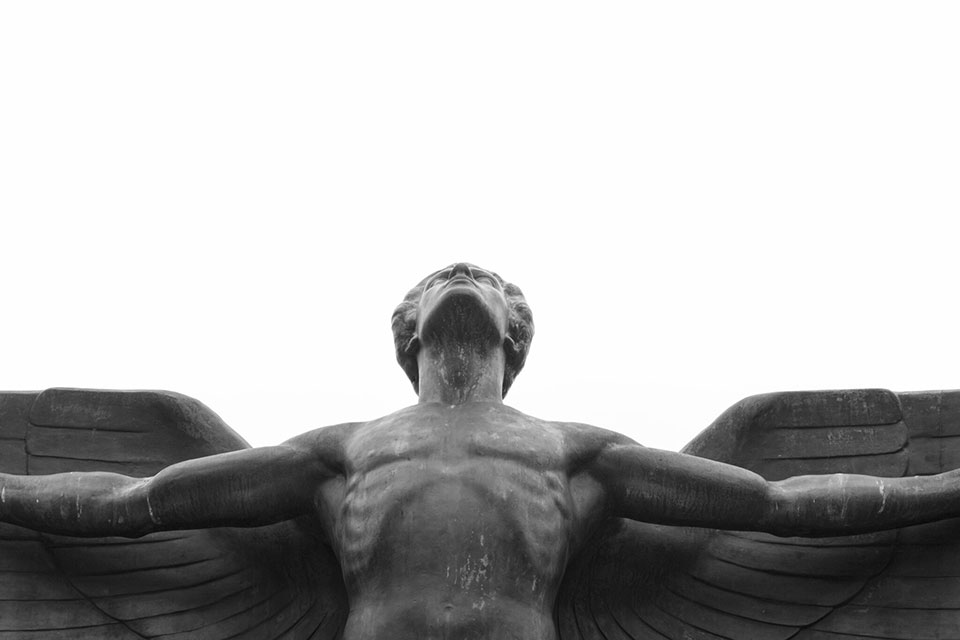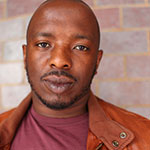Icarus Asks Basquiat to Paint Him

Series editor’s note: The speaker in Nick Makoha’s poem is an unexpected one: Icarus, coming back to reclaim his narrative, approaching Basquiat with a simple request—to be painted, perhaps in a new light, in a new way. There is a childlike hesitation to the speaker, as if he knows already who he is talking to, both seemingly occupying the liminal spaces where they have been misrepresented, or worse, represented only in a particular way. But as playful as he is, this Icarus comes bearing heavy things; this disappearing has become my life, he says, pointing toward an invisibility Basquiat’s own musing can relate to. And the need to be seen is fervent; to be seen wholly, fully, for who he was trying to be, and not what the world makes him out to be. Though we never hear from the artist himself, already we feel his beating heart, our beating hearts, nodding in agreement; why yes, everyone should learn from blackness. – Mahtem Shiferraw
Icarus Asks Basquiat to Paint Him
Come closer? Your eyes tell me you are filled
with prescriptions. Is this who you have always
been? If I am honest, I was afraid of meeting you.
As I walked through the door, I saw you scribbling
a beating heart on the border of a textbook. We can
eat first if you’re hungry. The Cajun chicken sandwich
is five stars. Put that away. It’s on me. What I am bout
to tell you, I need you to commit to memory. In their
ignorance, they remember my flight and how with
my father, we gained lift. The flex of our wings created
the upwash. To preserve our energies, we inverted
wings into Vs and Js. But to them, I am a fallen angel
with the sea ready to catch me. This disappearing has
become my life as the sky slow turns. Their pigments
have me hung on a wall falling forever. Make sure
they see me as you see me now. Everyone can learn from
blackness. I did not desert this life, I was driven from it
like a god from his people. But to you, I need to be the
morning bird. When I was the morning bird, and you were
the light, I did not run. When I was the black astronaut,
and you were the sky, I did not run. OH! Here come our
orders. What do you want to drink? Could we have two cognacs?
Editorial note: Black Voices is a special series guest-edited by Mahtem Shiferraw and sponsored by the WLT Puterbaugh Endowment, which makes possible the Puterbaugh Lit Fest. The series will run on a weekly basis through October 2021.











